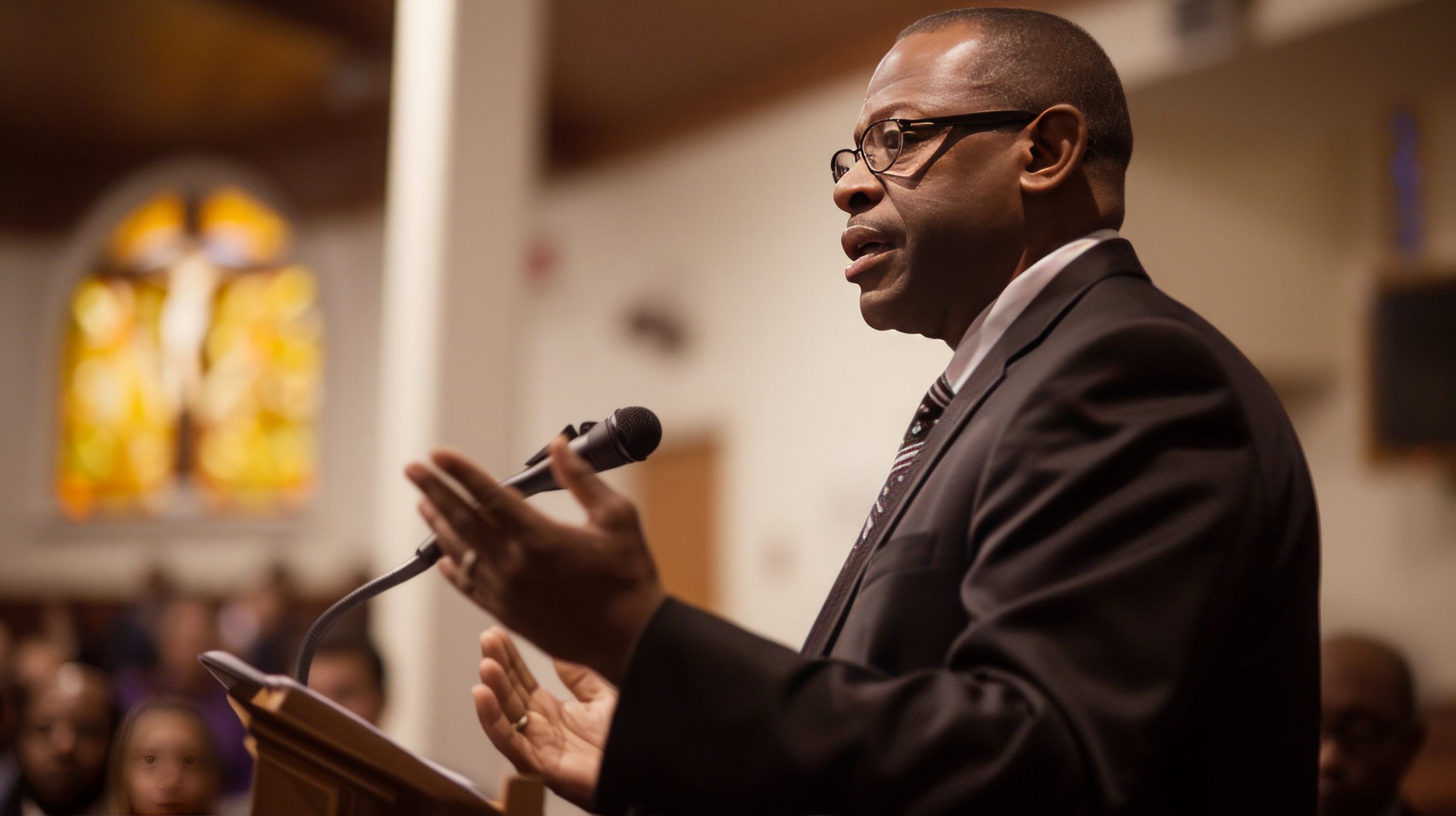
Praying for Your Pastor - Part III: Praying for Your Pastor’s Family
Ministry doesn’t just affect pastors—it affects their families too. Being the spouse or child of a pastor comes with unique pressures, unseen struggles, and expectations that can feel overwhelming.

The Rhythms of a Healthy Pastor: Daily, Weekly, and Seasonal Practices for Longevity
Ministry is a marathon, not a sprint. Yet too many pastors live as if their calling requires them to run at a breakneck pace, neglecting the very rhythms that could sustain them for the long haul. Without intentional practices that prioritize spiritual, emotional, and physical health, burnout isn’t just possible—it’s inevitable.

10 Ways to Encourage Your Pastor This Week
Pastors pour themselves out week after week—preparing sermons, counseling struggling members, leading through challenges, and carrying the weight of spiritual leadership. And while many people appreciate their pastor, encouragement is often assumed rather than expressed.

Praying for Your Pastor - Part II: Praying for Your Pastor’s Spiritual Health
In ministry, it’s easy to assume that pastors are spiritually strong simply because they’re always preaching, teaching, and leading others in faith. But the reality is, many pastors struggle to maintain their own personal walk with God.

Praying for Your Pastor - Part I: Why Your Pastor Needs Your Prayers
Last month, our church experienced a season of prayer and fasting. It was a powerful time to seek the Lord and ask Him to move in our lives, families, and church. But during that time, I was convicted of something: I wasn’t praying for my pastor as much as I should have been.

Why Your Church Needs an Intentional and Repeatable Discipleship Strategy
In a world where churches often measure success by attendance and programs, it's easy to overlook the deeper question: Are we making disciples? Programs may fill seats, but disciplemaking transforms lives. That's why having an intentional and repeatable discipleship strategy—like micro-groups, or what at Replicate call D-Groups—is critical for every church.

Leading from Personal Vision: The Missing Piece in Pastoral Leadership (Part III)
When pastors lead with personal vision in place, their leadership takes on new depth and credibility. Instead of asking their people to live lives of purpose while struggling to do so themselves, they lead from a place of integrity and inspiration.

Leading from Personal Vision: The Missing Piece in Pastoral Leadership (Part II)
So how does a pastor develop a personal vision that fuels rather than fights against their ministry vision? It starts with intentional reflection in three key areas…

Leading from Personal Vision: The Missing Piece in Pastoral Leadership (Part I)
Many pastors lead with a clear church vision in mind. They cast mission statements, set goals, and rally people toward a preferred future. Yet, many of these same pastors struggle with a lack of personal vision.

Why Every Church Needs a Mission-Driven Budget
For many churches, budgeting is often treated as a financial exercise—a process of managing income and expenses to keep the lights on and the ministry running. While this is important, it falls short of the higher calling of stewardship.

The Role of Emotional Intelligence in Effective Church Leadership
In the realm of church leadership, success is often defined by spiritual depth, theological knowledge, and administrative competence. While these qualities are undoubtedly important, one often overlooked but equally vital attribute is emotional intelligence.

Balancing Strategy and Shepherding: The Dual Role of Church Leaders
Church leaders today must balance the spiritual care of their congregation with the practical demands of ministry, navigating the tension between shepherding and strategy. When integrated thoughtfully, these roles complement each other, creating a ministry that is both relational and purposeful, reflecting the multifaceted nature of Christ.

Hidden Seasons of Growth: Embracing God’s Work in the Quiet
Hidden seasons may feel quiet and stagnant, but they are often where God does His most transformative work—strengthening our roots and deepening our faith. Just as a vine develops unseen roots before bearing fruit, these times prepare us for the growth and purpose God has planned.

Cultivating a Culture of Generosity in Your Church
Generosity reflects the very heart of God and is central to the Christian faith, shaping not just financial habits but hearts and discipleship. By teaching, modeling, and celebrating generosity, church leaders can inspire a culture that mirrors the selflessness of Christ and transforms lives for God’s glory.

The Role of Strategic Planning in Church Growth: Avoiding the Pitfalls of Short-Term Thinking
Church growth is exciting, but without strategic planning, it can quickly spiral into chaos. By prioritizing vision, sustainability, and alignment with their mission, churches can navigate growth effectively and avoid pitfalls like burnout, mission drift, and reactive decision-making, all while staying rooted in God’s purpose.

The Art of Balanced Change: Leadership, Patience, and the Slow Dance of Progress
Church leadership often involves balancing vision with patience, moving people toward change at a pace they can handle. Navigating the four stages of change—designing, communicating, implementing, and adopting—requires strategic pauses, relational wisdom, and a commitment to lead with people in mind.

From Programs to People: How Shifting Focus Can Revitalize a Church Community
In many churches today, the temptation to focus on programs can overshadow the deeper purpose of disciple-making, leading to a disconnect between leaders and the people they serve. Shifting from a program-centric approach to prioritizing personal connections fosters transformative relationships that encourage spiritual growth and community engagement.

Calling vs. Vocation: A Crucial Distinction for Church Leaders
In ministry, it’s easy to confuse our calling with our vocation, seeing them as one and the same. But calling goes beyond the duties we perform; it’s rooted in our relationship with Christ and our identity in Him. When we prioritize abiding in Christ, our work becomes an overflow of that connection, enriching our lives and our ministries with genuine purpose and balance.

Multiplying Leadership by Letting Go: The Discipleship of Delegation
As pastors and church leaders, our tendency to cling to control can hinder discipleship by preventing others from growing into their own ministry roles. True delegation—like Jesus modeled—means empowering others through guidance and support, fostering a sustainable church that can carry the mission forward for generations.

Discipleship: The Ministry of the Church, Not Just a Ministry in the Church
Explore the vital role of discipleship in the church. Too often, discipleship is treated as just another ministry option, but it is actually the core mission of the church. A disciple-making church goes beyond hosting events, focusing instead on transforming lives by equipping believers to engage deeply with Scripture, build authentic relationships, and live missionally. Discipleship isn’t a Sunday-only activity—it’s a seven-day calling. At Replicate, we help churches shift their focus from managing programs to fulfilling Jesus’ command to make disciples.
